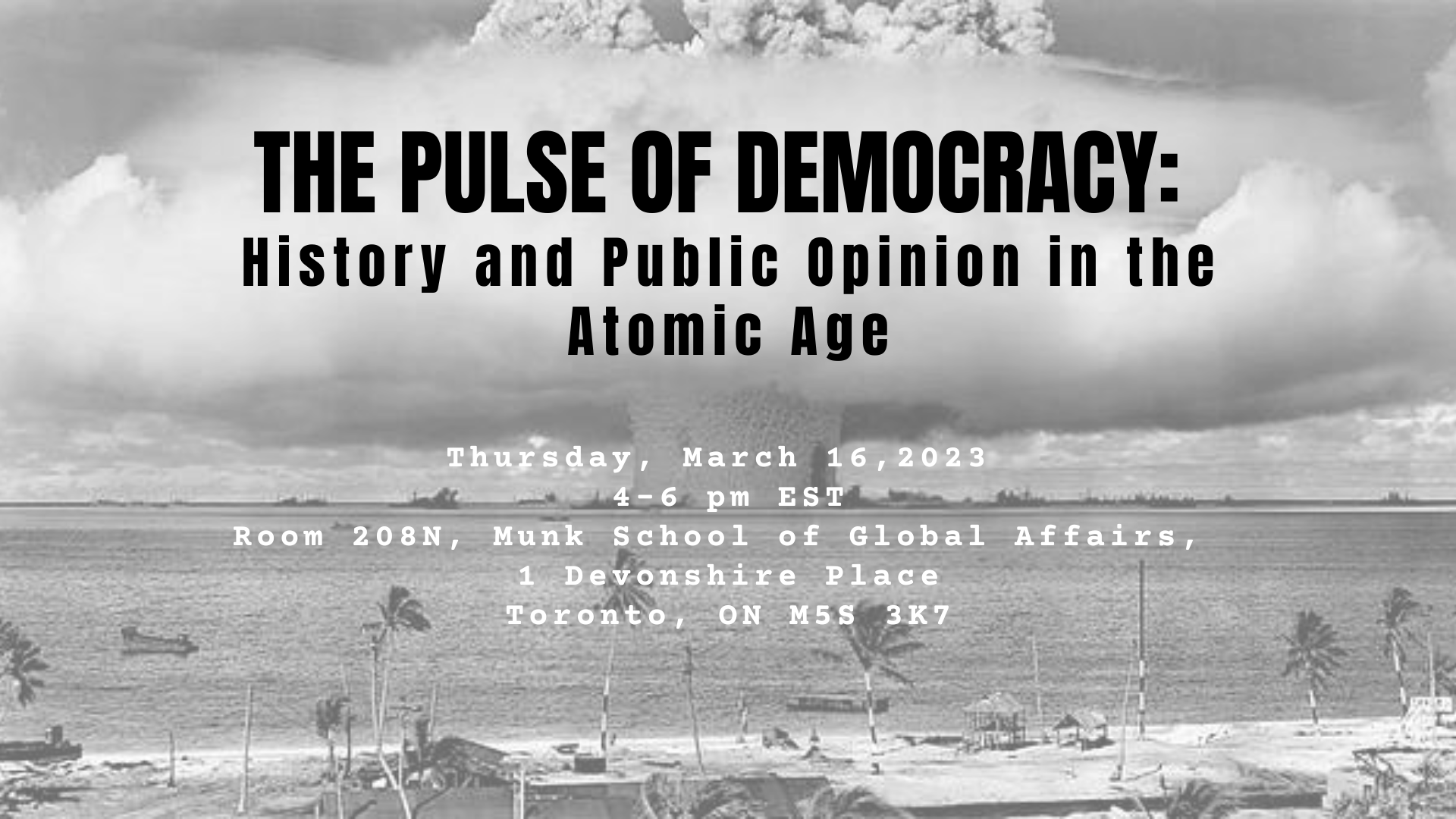About the Event
Does public opinion matter? Is public opinion rational? How can public opinion be effectively communicated to policymakers? Do policymakers even listen, and should they? These questions certainly puzzle us now, but they have also deep historical roots. In the 1940s United States, the study of public opinion was transforming as a result of the quantitative turn in the social sciences. Society as a whole was also changing, as the world moved from the most devastating war of the modern era to a period of uneasy peace and then Cold War. Central to this transition was the advent of the atomic age. The development of atomic weapons was a problem not just for policymakers, but for everyone, everywhere. When a single bomb could destroy a city, how could ordinary people not stake a claim over their atomic future? In this talk, Katie Davis will demonstrate the relationship between early Cold War atomic politics and US public opinion, while exploring methods for contemporary international historians to incorporate the study of public opinion into their own research.
About Katie Davis
Katie Davis is the Postdoctoral Fellow in Contemporary International History at the University of Toronto Department of History and the Bill Graham Centre for Contemporary International History. Her work focuses on the relationship between public opinion, civil society, and foreign policymaking in the United States. Her current book project examines these themes in the context of US debates about international control of atomic energy in the 1940s. She received a PhD in History from the University of Toronto and MSc in Theory and History of International Relations from the London School of Economics.


